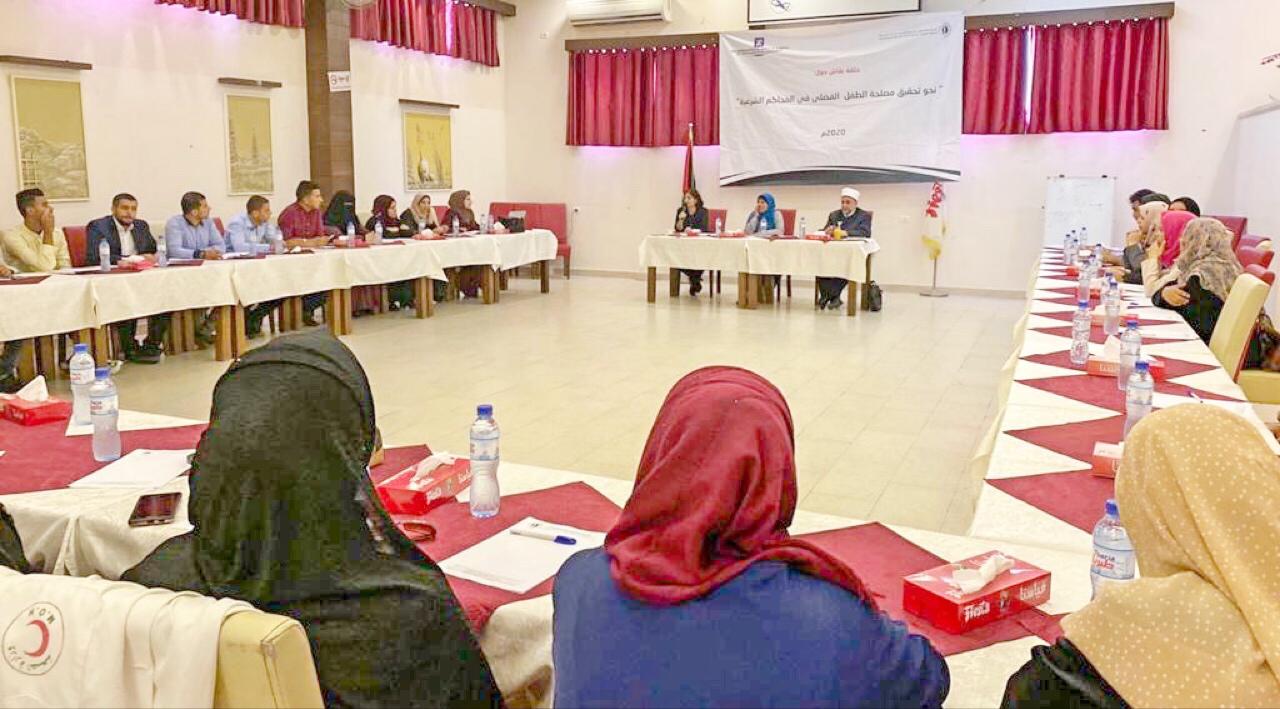
Ref: 39/2020Date: 23 August 2020
On Wednesday, 19 August 2020, the Women’s Rights Unit at the Palestinian Centre for Human Rights (PCHR) completed the third workshop within the “Sharia Courts for the Best Interest of Children” series. The workshop was held in Rafah, southern Gaza Strip, and was attended by Ahmed al-Buhessi, Gaza Sharia’ Appeal Court judge, representatives of women rights organizations, civil society organizations (CSOs) and specialized Sharia lawyers.
Mona al-Shawa, Head of PCHR’s WRU, opened the meeting by welcoming the attendees and pointed out that this meeting is the third of its kind within a series of workshops that will be held across the Gaza Strip to discuss the best interest of children regarding child custody, hosting and visitation rights; its guarantees and means to achieve them in the Sharia courts. Al-Shawa emphasized that these workshops aim to open dialogue and discussion between activists and organizations active in the field of child and women’s rights and Sharia Courts Council on many important issues related to child and women’s rights; mainly custody cases. Al-Shawa also pointed out that these workshops are a continuation of PCHR’s former workshop (2019) on the Palestinian Child Law which provided many valuable recommendations, the most prominent of which was the submission of a legal memorandum signed by 40 CSOs, HROs and activists, which demanded equality between widowed and divorced women in terms of child custody and focusing on the child’s best interests in all laws and consequent legal proceedings.
Samah Ashour, lawyer at PCHR’s WRU, presented a paper discussing the best interests of the child in custody, hosting and visitation cases, and the extent to which the 2004 Palestinian Child Law No. (7), its amendments under law by decree No. (19) in 2012, and the International Convention on the Rights of the Child (1990) can be applied in Sharia’ Courts.
Ashour pointed out that discussing the best interests of the child is one of the fundamental principles enshrined in the International Convention on the Rights of the Child and the Palestinian Child Law, which intersect in their legal texts with the Personal Status Law, especially in custody, hosting and visitation cases. Ashour also stressed on two fundamental rights: the right to take the child’s opinion in the judicial proceedings related to their circumstances and the child’s right to have a choice.
Judge Ahmed al-Buhessi spoke about the provisions of Personal Status Law in in custody, hosting and visiting cases, and the age to offer the child with a choice, stressing that the young children cannot be left without custodian. Al-Buhessi clarified that young children must have someone who takes care and achieves the best interest of them. Al-Buhessiindicated that various judicial circulars were issued by Sharia Courts Council to achieve the best interest of the child, including extending the custody age for the woman whose husband had died. Al-Buhaisi also pointed out that there is a set of laws that the Technical Office at the Sharia Court is currently studying them.
The panel discussion concluded with a number of recommendations: